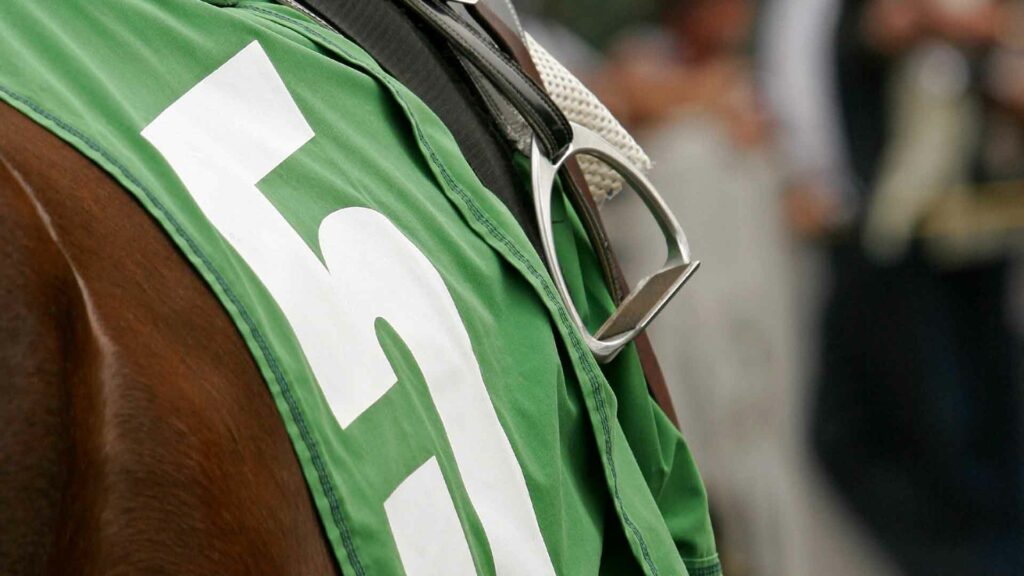One of my favorite events each Spring is the Kentucky Derby. I love the pomp and circumstance, the excitement of the race, as well as the fanfare leading up to the moment when the gates fling open and the horses shoot out onto the track at Churchill Downs. But more than this, I love the individual stories that arise about horses, their owners, and their trainers that are told on race day leading up to the event itself. These peaks behind the curtain of Derby Day provide an amazing and rich context to the quickly fleeting “fastest two minutes in sports.” In 2015, the horse of a lifetime arrived at the Kentucky Derby. There was a buzz in the air, and with much anticipation, we were introduced to a horse who would make history, American Pharoah [sic].

American Pharoah would not only win the Kentucky Derby, but he would go on to win the Preakness Stakes and the Belmont Stakes, fetching the elusive Triple Crown. Not only this, but American Pharoah would also win the Breeder’s Cup Classic, becoming the first horse in history to win all four races, the Grand Slam of Thoroughbred Racing. Though retired from racing now, and long off of my mind, American Pharoah’s name popped into my head during my devotional this morning.
I’m currently going through the book of Exodus, and I was reading this morning about the plagues that God sent upon Egypt and Pharaoh. We all know the story. Israel is enslaved in Egypt when God calls Moses to lead the people out of slavery into the Promised Land. Pharaoh, however, is not such a fan of this idea. Routinely, he hardens his heart, goes back on promises, and makes small and meaningless concessions in order to keep the people under his control. Plague after plague arrives and, at times, Pharaoh seems like he is going to relent and allow the people to go (Exod. 8:8, 25; 10:8, 24), only to change his mind when his conditions are not met. Eventually, the 10th plague comes and Pharaoh can no longer withhold the Israelites. He allows them to go into the desert to worship the Lord, but not without a final chase to the Red Sea to pull them once again into his grasp.
This current moment, perhaps, offers some parallels to the book of Exodus for us to consider. We are regularly faced with the injustices of racism and violence towards African Americans in this country, rolling into mainstream media like the plagues that hit Egypt, one after the other. Each time, we say we will try to do better, pray more, listen more attentively, or make changes in our lives. Then, after some time has passed and things have cooled down, we go about our lives with no meaningful change. We, often, are American Pharaohs. Rather than doing whatever we can to lead to the flourishing of our brothers and sisters of color, we let our hearts become hardened once again when the plague of racism has subsided. We make small concessions, but no significant change. Or worse, we go back on anything we promised that would change. I confess that I am guilty of this too many times to count, and I am ashamed of it. How many plagues of racism must assail us before we relent? How many times before we say, “Lord, have your way!”
As the horse American Pharoah gets his name from a blended heritage of sire horses’ names, we too have a blended heritage. We have both a heritage as Americans who claim the rights and freedoms of this country, yet at times may be Pharaohs in our hearts, unconcerned about whether those rights are equally experienced by all. American Pharoah made history by winning races, but our history with races is much darker. It is marred by sin, hate, evil, and injustice done to particular races.
So, here stands a call for us today. When these acts of violence fade from our newsfeeds, will we allow our hearts to remain softened? Weeks and months from now, it will be tempting to forget the things we have seen this week as life re-approaches the “status-quo.” My challenge for us all is to remain vigilant in our duty. It is a challenge to perpetually engage in the work of reconciliation and unity, never forgetting that the fight is not over. I ask you, my brothers and sisters, to join me in this work. I believe none of us wish for things to remain as they are, but this will not happen if we remain as we are. Let us fight the good fight, love with compassion, and seek the renewal that our land needs.
“Is not this the fast that I choose:
Isaiah 58:6
to loose the bonds of wickedness,
to undo the straps of the yoke,
to let the oppressed go free,
and to break every yoke?”
Please feel to reach out to me, Mark Hampton, if you would like to discuss this post.

